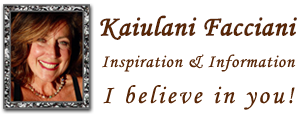Post #4: The Role of Fungus in Cancer
Highlights from the International Integrative Oncology Conference – San Diego, April 2016
presentation by Doug Kaufmann, host of TV’s “Know the Cause”
More than 75,000 species of fungus have been identified but it is extimated there are actually more than 1.5 million. Over 300 have been identified as human pathogens. The American Caner Society defines fungal mycotoxins as mutagenic carcinogens. Most are immuno-suppressive and none can be destroyed by heat. The most common mycotoxins that we are exposed to are aflatoxins, found in nuts, and aspergillus, found in corn. Not only are they carcinogenic and immuno-suppressive, they can wreak havoc on organ systems. According to the Council for Agricultural Science, America’s grain and corn supplies are contaminated by fungal mycotoxins. Many of it is caught before it reaches our plate but is used in animal feed or to produce alcohol.
Kaufmann’s hypothesis of cancer posits that cancer cells are formed when human DNA combines with the DNA of fungal mycotoxins. Grain mycotoxins glow green under a black light and cancer cells contain granules that glow green under the microscope as well. Both cancer cells and fungal cells grow in a sac formation. The most common mutated gene in people who have cancer is P53. Aspergillus fungus is known to cause P53 mutations. Fungal lung infections and lung cancer are almost indistinguishable on a CT scan. Other similarities between cancer and fungi are that both metabolize nutrients in the absence of oxygen, generate lactic acid, depend on their host for sustenance, proliferation and reproduction, thrive in the presence of sugar and dies in its absence, emit VOCs detectable by dogs, and respond to anti-fungal medicine.
In fact, researchers at John Hopkins have found that a common anti-fungal medicine blocks the growth of new blood vessels that feed cancer. The German Cancer Research Center has found an anti-fungal drug that kills cancer cells. An anti-fungal has been found to reduce PSA in prostate cancer patients and studies are being done on prostate nodules to determine if they are, in fact, fungi sacs. UT Austin has shown an inexpensive anti-fungal drug to slow tumor growth and boost the effectiveness of other drugs and is evaluating it as a chemotherapy.
For a preventive diet or, if you are actively fighting cancer, Kaufmann recommends an anti-fungal program:
• no grains (including corn and sugar)
• no alcohol of any kind
• no yeast, fungi/mushrooms
• no peanuts
• take an anti-fungal supplementation
In addition to avoiding fungal impregnated food and alcohol, make sure you are not
living in a moldy home and avoid unnecessary anti-biotics, including in your food supply.
My notes
I have been following this theory for years, ever since I met a woman who swore that the massive malignant tumors in her breast disappeared without a trace by doing the following… eliminating all sugar and high-glycemic foods from her diet and drinking gallons of pau d’arco tea all day every day. Pau d’arco is the bark of a South American tree that is a potent anti-fungal medicine. In fact, I drink the tea to combat systemic Candida overgrowth. I have also followed the work of a controversial Italian doctor, Dr. Tullio Simoncini, who insists that cancer and Candida are different stages of the same disease. I don’t know whether they are the same, but I find it very plausible that they are related. I approached Mr. Kaufmann after his lecture to ask him about the paradox of medicinal mushrooms. I believe strongly that the immune-boosting properties of the beta glucans found in mushrooms and the cancer-killing properties of several species of medicinal mushrooms have been vital to the success of my protocol. I still take them as a powdered supplement every day. He admitted that the research does support my claims and suggested that perhaps wild mushrooms, as opposed to the white button mushrooms most common in the store, are different in that regard.
This post is part of a series covering the Highlights of the International Integrative Oncology Conference – San Diego, April 2016. Click for more posts.
I attended the 14th annual International Integrative Oncology Conference in San Diego as well as the accompanying Answers for Cancer Summit. The former is directed towards integrative oncologists and other cancer care professionals and the latter is for patients, caregivers, and other “laymen” interested in integrative therapies. It is put on by Annie Brandt, a 15-year cancer survivor and founder of the Best Answer for Cancer Foundation (www.thebestanswerforcancer.org) and I was truly impressed by the credentials of the presenters and the quality of the information presented. Truthfully I was a little over my head at times during the professionals conference as they bandied about acronyms faster than I could Google. Although they presented slide upon slide on medical research, I am not including the complete references for the most part because of the time required. I am only providing highlights, and only of subjects I deemed relevant to our day-to-day lives as cancer patients. I have tried to translate into laymen’s terms and provide just enough information so that you can research more fully on subjects that interest you. I encourage you to discuss these subjects with your oncologist. It was very comforting and refreshing to be surrounded by doctors and health professionals who absolutely understand the role of diet and lifestyle in fighting this devastating disease and incorporate this knowledge into their oncology practices.
Disclaimer: Nothing contained on this website should be construed as medical advice. I am not a doctor. I am a Stage IV breast cancer thriver who is currently NED/NAD and simply sharing what I did, and do, and why. Please research anything I share to determine if it is a good path for you. Bless you all on the path you choose.
